October 31, 2022 | Vanessa McMains

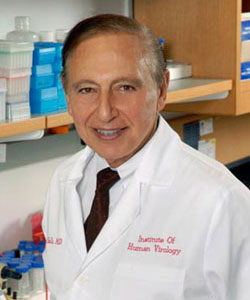 Institute of Human Virology (IHV) researchers at the University of Maryland School of Medicine (UMSOM) have received two five-year awards from the National Institutes of Health’s National Cancer Institute (NCI) for a total of $7.5 million. One award aims to reduce the incidence of lung cancer and other cancers associated with using tobacco in Botswana. The other is focusing on improving screening and treatment of anal precancer in Nigeria. Both grants will make use of existing HIV treatment and prevention infrastructure in low- and middle-income countries to reach people living with HIV who are most at risk for these particular types of cancers.
Institute of Human Virology (IHV) researchers at the University of Maryland School of Medicine (UMSOM) have received two five-year awards from the National Institutes of Health’s National Cancer Institute (NCI) for a total of $7.5 million. One award aims to reduce the incidence of lung cancer and other cancers associated with using tobacco in Botswana. The other is focusing on improving screening and treatment of anal precancer in Nigeria. Both grants will make use of existing HIV treatment and prevention infrastructure in low- and middle-income countries to reach people living with HIV who are most at risk for these particular types of cancers.
“With the cancer burden rising in persons living with HIV in sub-Saharan Africa and most cancer research heavily skewed toward high-income countries, advancing global cancer research designed to focus on prevention and treatment in these regions is crucial. These studies will contribute to cancer control globally for persons living longer with HIV,” said Robert C. Gallo, MD, the Homer & Martha Gudelsky Distinguished Professor in Medicine, Co-Founder and Director of the UMSOM’s IHV, and Co-Founder and Chair of the Scientific Leadership Board of the Global Virus Network (GVN).
Botswana Lung Cancer Study
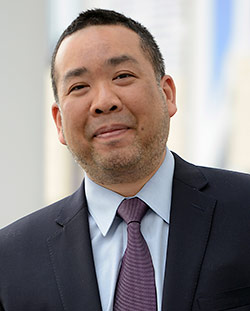 The Botswana Smoking Abstinence Reinforcement Trial, named BSMART, will screen patients for smoking across the network of HIV treatment facilities; it will offer a brief intervention using the “5 A’s: Ask, Advise, Assess, Assist, and Arrange” for treatment with medication to help patients quit smoking. Quitting smoking is the most effective way to prevent cancers that can accompany tobacco use.
The Botswana Smoking Abstinence Reinforcement Trial, named BSMART, will screen patients for smoking across the network of HIV treatment facilities; it will offer a brief intervention using the “5 A’s: Ask, Advise, Assess, Assist, and Arrange” for treatment with medication to help patients quit smoking. Quitting smoking is the most effective way to prevent cancers that can accompany tobacco use.
“Smokers with HIV are at a substantially elevated risk of several tobacco-related cancers,” said Principal Investigator of the BSMART study Man Charurat, PhD, MHS, Professor of Medicine, Director of the Center for International Health, Education, and Biosecurity (Ciheb) at UMSOM’s IHV, and Division Director for Global Health Sciences at UMSOM’s Department of Epidemiology and Public Health. “The BSMART study will use implementation science to enact a comprehensive public health strategy incorporated into a real-world care system, in which patients before now have been frustratingly left behind.”
Botswana has the highest prevalence of HIV and tobacco use in sub-Saharan Africa. Lung cancer is the most common cancer not caused by AIDS among people living with HIV and accounts for 20 percent of the cancer burden. The BSMART study in Botswana will be poised to assist the Government of Botswana’s national goals in smoking cessation for its citizens.
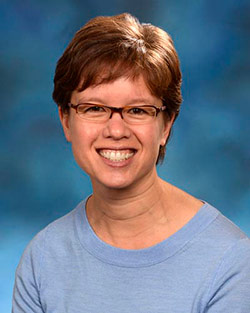 Nigeria Anal Cancer Study
Nigeria Anal Cancer Study
The IMPACT study, short for Integrated Model for the Prevention of Anal Cancer using screen and Treat for HSIL (high-grade intraepithelial lesions, also known as precancer), will screen and treat precancer to prevent anal cancer in sexual and gender minorities, including men who have sex with other men and people who are transgender. The study will be performed at the TRUST Clinic in Nigeria, which was established by IHV in 2012.
Human papillomavirus (HPV), the virus that causes anal cancer, is spread through anal sex. Because people with HIV can have suppressed immune systems, those who also have HPV can experience persistent, higher risk infections that are more likely to develop into precancer with potential progression to cancer. Following the success of cervical cancer prevention strategies, health care providers recently learned that they could treat precancer to prevent anal cancer. The IMPACT study aims to transfer knowledge immediately from research to practice in a low-to-middle income setting.
“Since it is very difficult to identify as a man who has sex with other men in Nigeria because of the fear of being imprisoned and being ostracized by the community, HPV-associated disease is typically extensive before it is identified,” said IMPACT study Principal Investigator Rebecca Nowak, PhD, Assistant Professor of Epidemiology and Public Health at UMSOM’s IHV. “The TRUST Clinic is a ’safe’ place for us to reach these most vulnerable individuals, where we hope to identify and treat damage from HPV early to prevent progression to anal cancer.”
 The sexual and gender minorities living with HIV bear the greatest burden of anal cancer with an 80-fold higher risk compared to the general population. Despite the high prevalence of HIV in the Sub-Saharan African region, anal cancer screening and treatment is unavailable. Thus, the IMPACT study will provide care to people living with HIV who face the highest risk of anal cancer in Nigeria.
The sexual and gender minorities living with HIV bear the greatest burden of anal cancer with an 80-fold higher risk compared to the general population. Despite the high prevalence of HIV in the Sub-Saharan African region, anal cancer screening and treatment is unavailable. Thus, the IMPACT study will provide care to people living with HIV who face the highest risk of anal cancer in Nigeria.
“To help address the cancer challenges across sub-Sahara African countries, Ciheb aims to accelerate integrating evidence-based cancer control interventions that bring together prevention, early detection and diagnosis, and treatment, all while strengthening research capacity and infrastructure in these regions,” said Dr. Charurat.
Mark T. Gladwin, MD, Vice President for Medical Affairs at University of Maryland, Baltimore and the John Z. and Akiko K. Bowers Distinguished Professor and Dean of UMSOM, said, “Sub-Saharan African countries face a double burden of disease. Cancer rates have been rising rapidly alongside continued morbidity and mortality from infectious diseases, like HIV. It is estimated that 75 percent of all cancer deaths will occur in lower to middle income countries by 2030. Hence, studies like BSMART and IMPACT, which are designed to bring evidence-based interventions, are urgent.”
About the Institute of Human Virology
Formed in 1996 as a partnership between the State of Maryland, the City of Baltimore, the University System of Maryland, and the University of Maryland Medical System, the IHV is an institute of the University of Maryland School of Medicine and is home to some of the most globally-recognized and world-renowned experts in all of virology. The IHV combines the disciplines of basic research, epidemiology, and clinical research in a concerted effort to speed the discovery of diagnostics and therapeutics for a wide variety of chronic and deadly viral and immune disorders, most notably HIV, the virus that causes AIDS. For more information, visit ihv.org and follow us on Twitter @IHVmaryland.
About the Center for International Health, Education, and Biosecurity
The Center for International Health, Education, and Biosecurity, founded in 2016, is an international research center created within the University of Maryland School of Medicine by the Institute of Human Virology. Ciheb’s mission is to improve population health, safeguarding communities against health-related threats, and promotes health equity worldwide. Ciheb currently implements 16 programs and training grants across sub-Saharan Africa. For more information, www.ciheb.ihv.org and follow us on Twitter @CIHEB_UMB
About the University of Maryland School of Medicine
Now in its third century, the University of Maryland School of Medicine was chartered in 1807 as the first public medical school in the United States. It continues today as one of the fastest growing, top-tier biomedical research enterprises in the world — with 46 academic departments, centers, institutes, and programs, and a faculty of more than 3,000 physicians, scientists, and allied health professionals, including members of the National Academy of Medicine and the National Academy of Sciences, and a distinguished two-time winner of the Albert E. Lasker Award in Medical Research. With an operating budget of more than $1.3 billion, the School of Medicine works closely in partnership with the University of Maryland Medical Center and Medical System to provide research-intensive, academic, and clinically based care for nearly 2 million patients each year. The School of Medicine has nearly $600 million in extramural funding, with most of its academic departments highly ranked among all medical schools in the nation in research funding. As one of the seven professional schools that make up the University of Maryland, Baltimore campus, the School of Medicine has a total population of nearly 9,000 faculty and staff, including 2,500 students, trainees, residents, and fellows. The combined School of Medicine and Medical System (“University of Maryland Medicine”) has an annual budget of over $6 billion and an economic impact of nearly $20 billion on the state and local community. The School of Medicine, which ranks as the 8th highest among public medical schools in research productivity (according to the Association of American Medical Colleges profile) is an innovator in translational medicine, with 606 active patents and 52 start-up companies. In the latest U.S. News & World Report ranking of the Best Medical Schools, published in 2021, the UM School of Medicine is ranked #9 among the 92 public medical schools in the U.S., and in the top 15 percent (#27) of all 192 public and private U.S. medical schools. The School of Medicine works locally, nationally, and globally, with research and treatment facilities in 36 countries around the world. Visit medschool.umaryland.edu
Contact
Vanessa McMains
Director, Media & Public Affairs
University of Maryland School of Medicine
Institute of Human Virology
vmcmains@ihv.umaryland.edu
Cell: 443-875-6099
Related stories
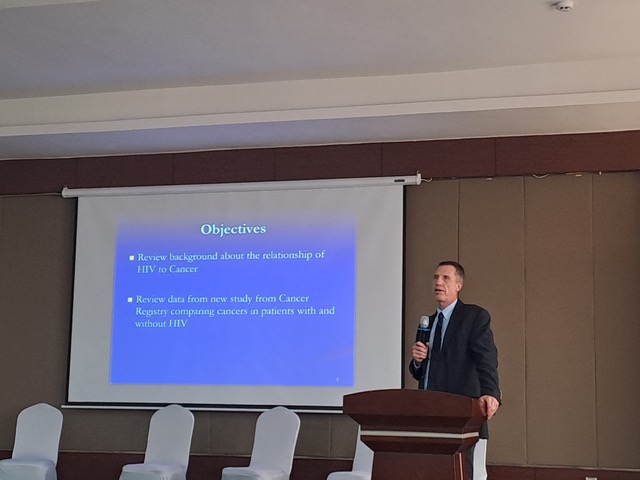
Monday, August 14, 2023
Ciheb Rwanda Takes Part in Cancer Prevention and Control Stakeholders’ Review Workshop
The primary goal of this workshop was to share the advancements made in the implementation of the National Cancer Control Program (NCCP), cancer registry data, and research dissemination. Additionally, the participants discussed challenges and devised joint plans to accelerate cancer prevention and management efforts in Rwanda.

Monday, March 20, 2023
Under the Microscope: Meet Dr. Manhattan Charurat
Meet Dr. Manhattan "Man" Charurat, Director of the Institute of Human Virology (IHV) Division of Epidemiology and Prevention and Global Director for the Center of International Health, Education, and Biosecurity (Ciheb).
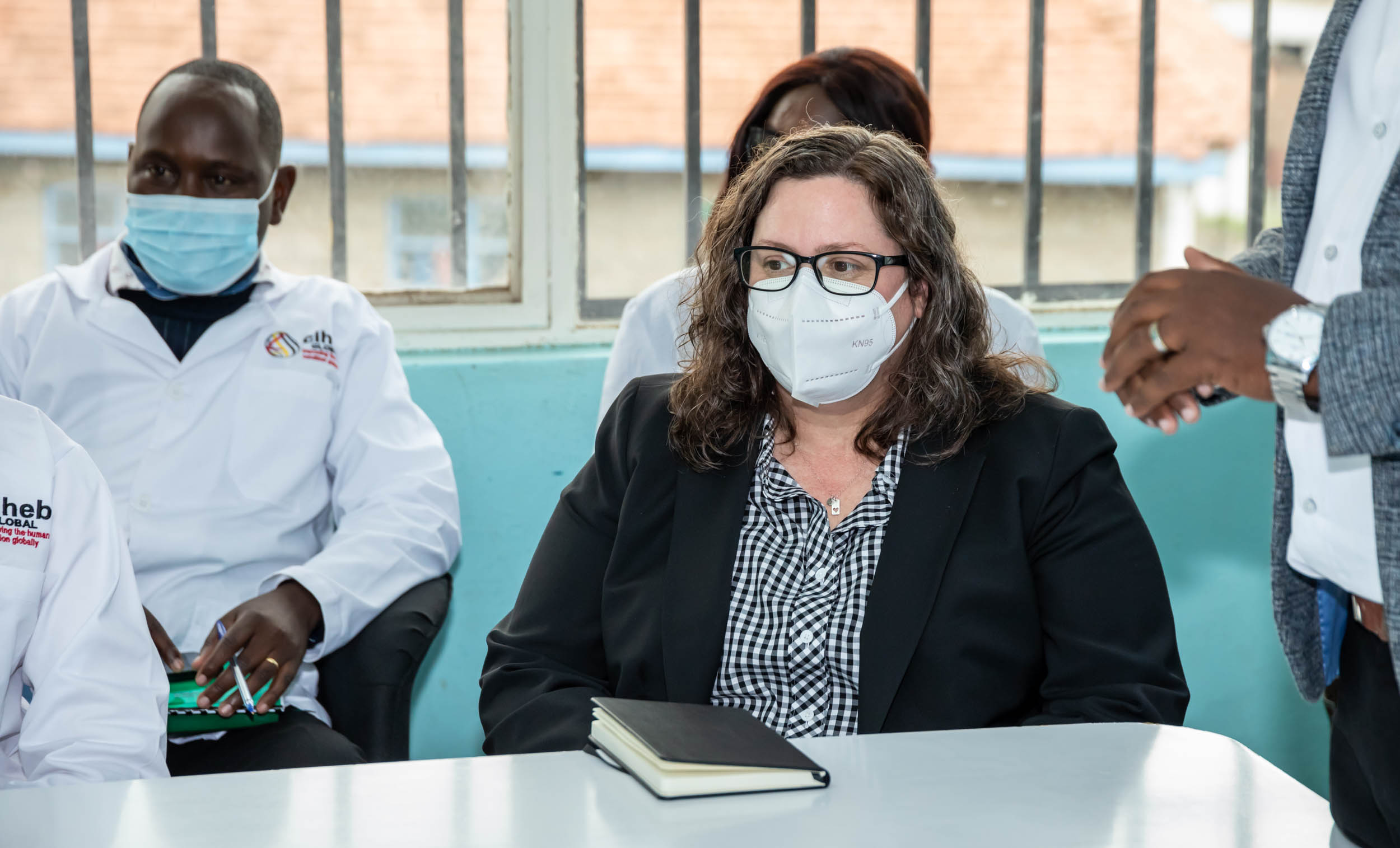
Friday, July 15, 2022
Ciheb Leadership Visits Nairobi Centers of Excellence
Dr. Kristen Stafford, Associate Professor at the University of Maryland, Baltimore (UMB) and Deputy Director of Ciheb Global, visited the Nairobi Centers of Excellence on a week-long tour in May 2022.

